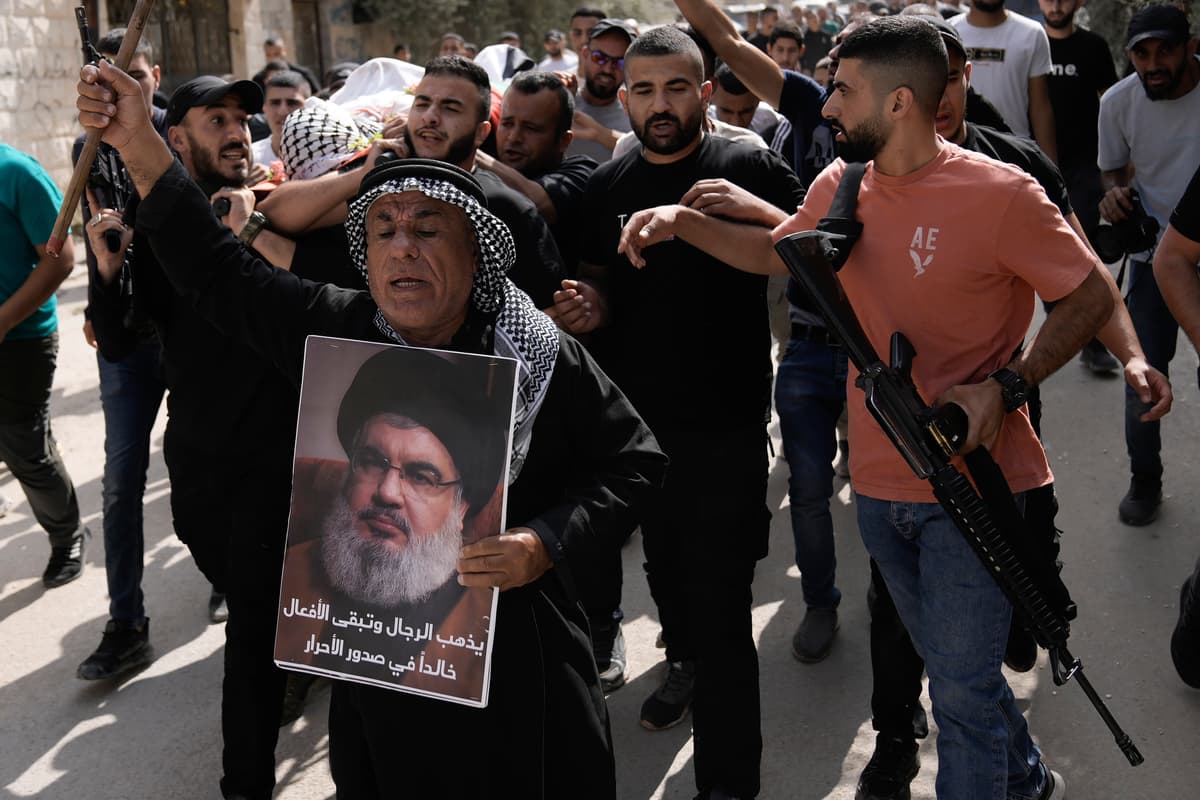Hezbollah Lashes Out at the BBC for Violating Lebanese Territory and Sovereignty, While the Terrorists Violate Lebanese Sovereignty
With the group reeling from the latest attacks and dismantling of its infrastructure, a post Nasrallah political era starts to emerge.

Hezbollah, the Iran-backed Shiite terrorist organization based in Lebanon, may be on its way out the door, but for the moment it still has a “media relations office” and somebody there isn’t happy. The reason is that a crew from the BBC, accompanied by the IDF, visited Israel’s “combat zone” in southern Lebanon on Sunday, which for Hezbollah was shocking and highly offensive.
The terrorist group’s communications office released a statement that upbraided the news organization. The BBC, it says in part, “brazenly sent a team that entered a southern village accompanied by the occupation army and violated the sanctity of Lebanese territory, sovereignty, and applicable Lebanese laws, as shown by the reports published by this institution.”
The irony is that Hezollah has been violating Lebanese sovereignty for decades, practically since its inception in 1982. It has commandeered the levers of power as it unofficially but steadily took over the southern swath of the country that borders northern Israel. That region has essentially turned into an armed camp that has for years operated as a hostile state within a state.
During the press tour, an Israeli brigade commander showed a British reporter caches of weapons found inside civilian homes, including boxes of brand-new mortars, new anti-tank missiles and mines, and shoulder-launched rockets and night-scopes.
On Monday, the IDF exposed two terror tunnels, one a half-mile long and loaded with missiles and weapons and another full of vehicles, the gas tanks of which were full and which vehicles had been fitted with machine guns. Hezbollah’s Radwan forces intended to use such weaponry in a raid into Israel’s Galilee.
While the political wing of Hezbollah is part of the so-called March 8 coalition which gives it a foothold in Lebanon’s fragile government, it is the armed military component that imbues it with power on the ground and at Beirut, too. While Hezbollah’s press office carps about BBC cameras peering into their terror lairs, the group is still entrenched in southern Lebanon.
It has flouted UN Resolution 1701 since the day it was promulgated at the end of the 2006 war fought between Israel and Hezbollah. The terror group’s sheer firepower and arsenal of rockets has effectively stymied any effort by Lebanon’s legitimate government to honor the resolution, which called for there to be no armed forces other than the UNIFIL peacekeeping forces and Lebanese military south of the Litani River.
Since the death of Hezbollah terror chief Hassan Nasrallah in an Israeli airstrike last month, the group has been on the backfoot. Israeli counter strikes in southern Lebanon have intensified over the past several days as the IDF moves closer to breaking Hezbollah’s stranglehold on Lebanon and doing the job that UNIFIL has not.
In this respect, Hezbollah taking even a few moments to bemoan the BBC when the terrorist group is in survival mode takes on an air of desperation. The group is in effect not only being pummeled by the IDF but is getting squeezed in the potentially looming confrontation between America and Iran.
On the military front, things are so overheated right now that it is anybody’s guess to what extent the facts on the ground will change by month’s end. Diplomatically, any kind of ceasefire looks unlikely for the time being.
However, according to some Lebanese press reports, the UN Security Council is quietly considering a sort of merger between two resolutions: 1701 and 1559. The latter, adopted in 2007, called for the Lebanese government to exert sovereignty over all of the country and disarm militia groups, notably Hezbollah.
Even if that comes to pass, though, a bigger battle could be coming in which Beirut would be just a bit player. It is too soon to tell what impact, if any, the anticipated Israeli retaliation for Iran’s missile attack earlier this month would have on the course of events in Lebanon.
In the meantime, the fighting in Lebanon has driven 1.2 million people from their homes over the past three weeks, and patience with Hezbollah inside the country is on the wane. Amid the terrorist groups’s strikes and Israeli counterstrikes, signs of a post-Nasrallah political era are beginning to emerge. That is, at least, the hope almost everywhere except perhaps Tehran.

